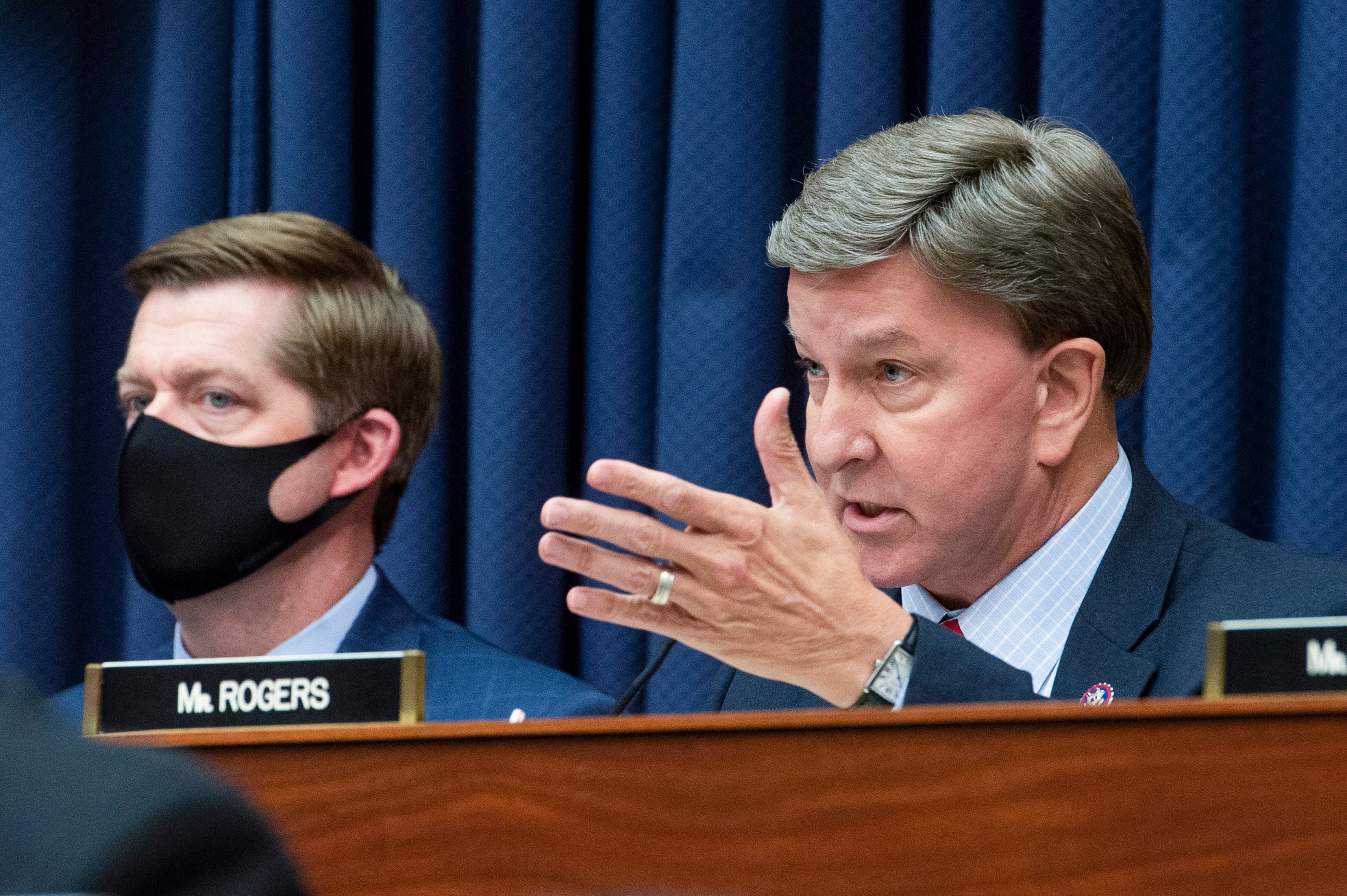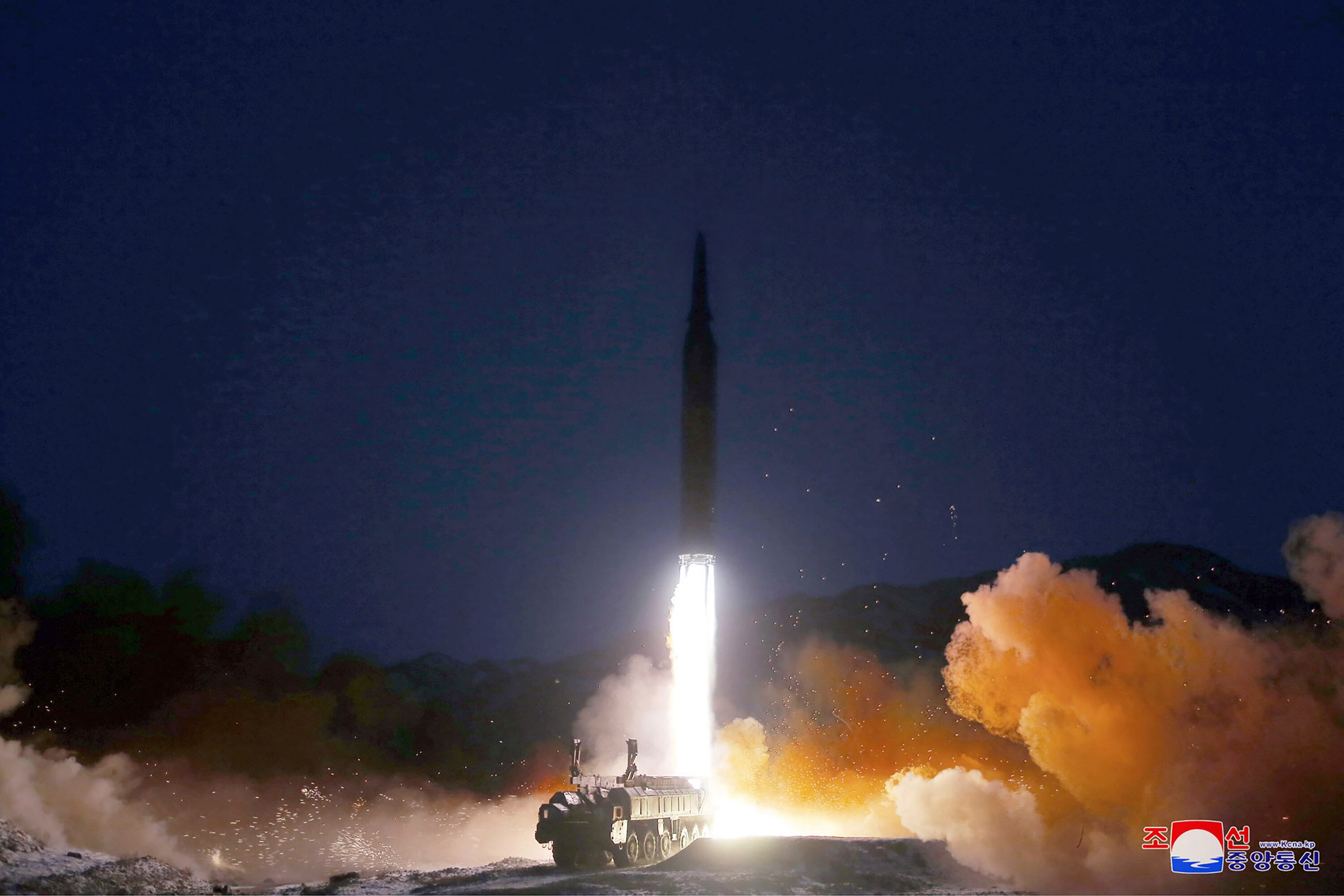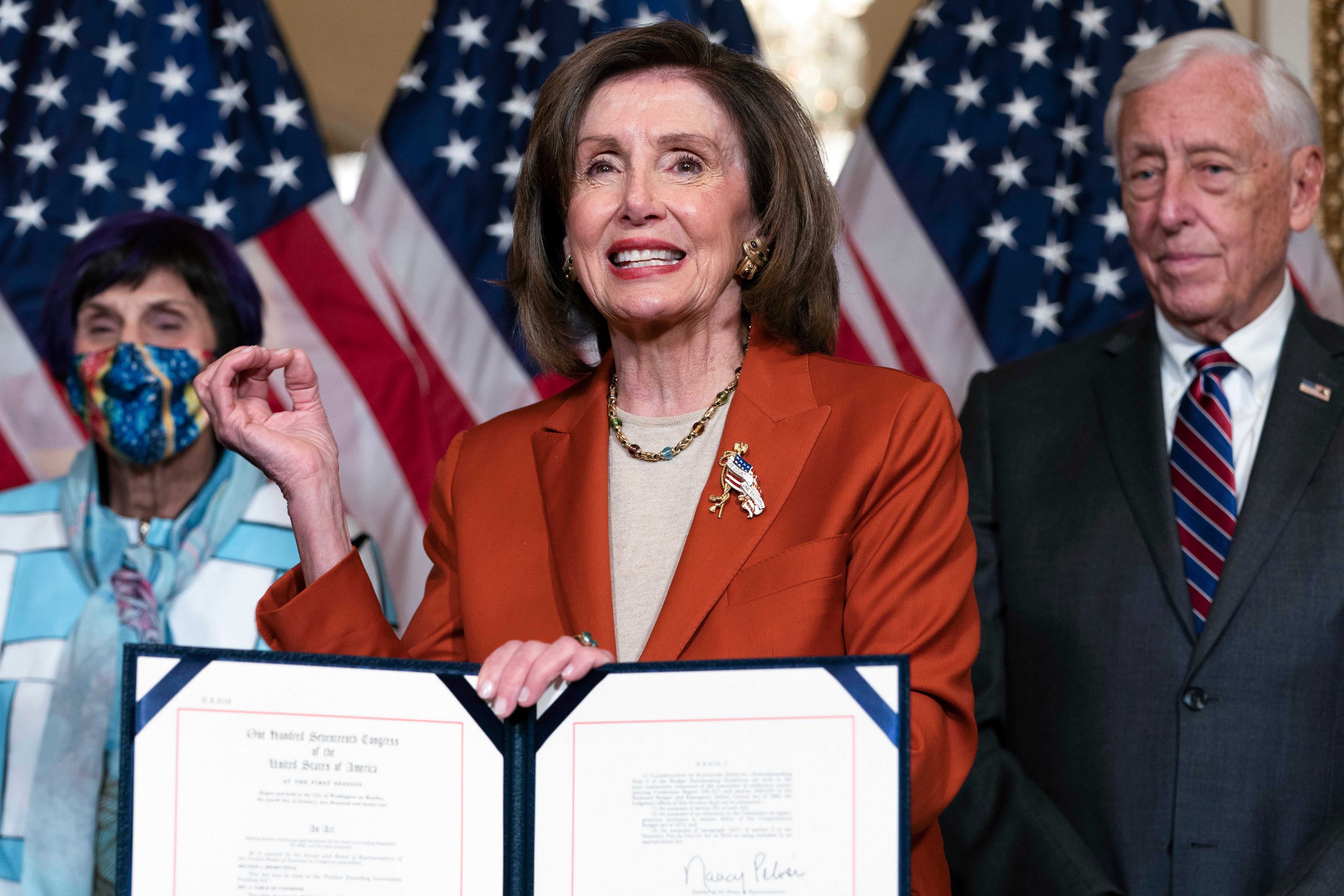WASHINGTON ― Despite repeated warnings from uniformed Pentagon leaders and lawmakers of both parties that a full-year continuing resolution will hurt national security, some defense industry advocates are still worried about an impasse.
On Thursday, both chambers of Congress left town on recess until the week of Jan. 31, after making scant progress on a deal for an omnibus federal spending package. Amid partisan divisions over funding levels and policy provisions, House Speaker Nancy Pelosi, D-N.Y., warned that a full-year CR would create a national security crisis ― in an effort to pressure Republicans.
“It is a national security issue of the highest priority, with the threats that exist out there. To go to a continuing resolution instead of a decision-making omnibus bill is to weaken our security and our stability,” Pelosi told reporters Thursday. “The Republicans should know that, so we hope we will be able to bring that legislation to the floor before [the current CR] expires.”
With fiscal 2022 spending bills four months overdue, lawmakers and the Pentagon have warned against a yearlong CR that would freeze defense spending at the level of 2021 appropriations. CRs continue funding at the previous year’s level, preventing the Pentagon from starting new acquisition programs and ramping up production quantities.
And without a 2022 spending deal to set a new baseline, the president’s budget submission is in limbo and expected to come months late, which is sowing uncertainty for the military and its vendors.
President Joe Biden signed a defense policy bill that boosts his $753 billion national defense budget request for FY22 to $778 billion, a 3% increase. But Republicans have said they want more for defense, less than the 16% non-defense increase proposed by Democrats and an agreement on some politically charged policy riders.
By the reckoning of National Defense Industrial Association Chairman Arnold Punaro, lawmakers could meet somewhere in the middle with 8% increases for both defense and nondefense, but that’s far from a certainty. Democrats have raised fears some Republicans see budget gridlock as an advantage heading into midterm elections and don’t want a deal at all.
“We’re still in budget chaos,” Punaro told Defense News this week. “China’s on the march, Russia’s on the move and North Korea’s on the advance, and yet Congress is sitting on their duff, not passing a spending bill. It’s disgraceful.”
RELATED

The lack of a 2022 deal as a baseline for defense amid escalating inflation presents a huge challenge for Pentagon planners crafting the FY23 budget request, Punaro said. He worried the administration could make a flat budget request, potentially costing the Pentagon billions of dollars in buying power.
Meanwhile, a full-year CR would yield $11 billion of lost growth, while 7% inflation would mean another $50 billion in lost buying power, according to defense consultant Jim McAleese, the founder of McAleese & Associates.
Though the current CR runs out on Feb. 18, recent negotiations in Congress have sparked some optimism.
Lead appropriators in the Senate met Jan. 13 with Senate Majority Leader Chuck Schumer and Senate Minority Leader Mitch McConnell to set the guidelines for negotiations. From there, lead House and Senate appropriators met to kick off talks, and Pelosi has said she’s been in discussions with House Appropriations Committee Chairwoman Rosa DeLauro, D-Conn.
Asked Thursday whether it’s realistic to get an agreement by Feb. 18, as Congress was about to leave town Senate Appropriations Committee Vice Chairman Richard Shelby, R-Ala., said: “That’s a good question. It’d be hard to get it by the 18th, but if we can make huge progress, we can probably get done soon.”
It’s unclear whether looming international crises with Russia and Ukraine, China and Taiwan, and North Korean missile tests would add pressure to pass defense spending. When asked about Pelosi’s comments, Shelby seemed to dig in.
“She’s right on that, but to underfund defense as some people would like to do, that would be a bigger challenge,” he said.

At a House Appropriations Committee hearing Jan. 12 about the effects of a potential full-year CR, the top officers of the Army, Navy, Air Force, Marine Corps and Space Force warned such a move would sabotage the military’s efforts to compete with China by stalling new weapons like hypersonic missiles.
“CRs effectively prevent modernization at speed,” said Marine Corps Commandant Gen. David Berger. “We actually stand to be outpaced by China — not because of their speed but because of our failure to comply with our own budgetary processes.”
The president and CEO of the Aerospace Industries Association, Eric Fanning, has warned that budget unpredictability is inefficient for the defense industry, which has to idle while the Pentagon waits for its projects to be funded. Amid the Capitol Hill activity, Fanning said he is “hopeful that the momentum continues.”
“The hearing painted a concerning picture of additional and unnecessary costs, as well risks to capabilities and to the industrial base in the short and long-terms. There was bipartisan agreement on how devastating a year-long CR could be,” Fanning said in a statement Thursday. “Over the last few days, there are positive signs that the message is getting through and the top appropriators from both parties are coming to the table.”
Lead Pentagon officials have talked for years about the need to harness the innovation of small tech firms. But CRs stifle those efforts, an executive at one of those firms, Anduril Industries, wrote in an essay this week.
That’s because CRs extend the time between a company winning funding for a prototype and then securing more funding to field it, known ruefully as the “valley of death,” Megan Milam, who is Anduril’s head of government relations and a former Pentagon budget official, noted in her essay.
While large firms may have built up the cash reserves to weather multiple delays, those delays mean small tech firms without those reserves can’t afford the Pentagon as a customer.
“For the newest entrants, this delay can lead to bankruptcy or force them to accept an acquisition by a larger player,” Milam wrote. “As a result, our brightest technologists usually shy away from defense work entirely.”
Joe Gould was the senior Pentagon reporter for Defense News, covering the intersection of national security policy, politics and the defense industry. He had previously served as Congress reporter.





